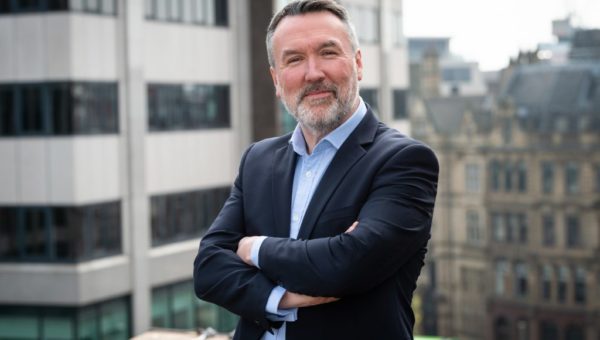The view from here – Will Schaffer, Mercia

In this series we ask key figures in the region and from our core sectors to share their insights.
This time we catch-up with Will Schaffer at Mercia Asset Management who is an Investment Manager with the Northern Powerhouse Investment Fund. Will shares his insights on what the investment landscape holds for 2021 and how business owners can best present themselves to potential investors.
What is the funding landscape looking like for our region’s businesses as we start the new year?
There’s lots of funding looking for new homes, research suggests that PE’s (Private Equity) started 2020 with record levels of cash. The pandemic did create a freeze initially as people worked to understand the situation, but low interest rates and tax advantages have increased the appetite for investment in innovative start-ups. The Pandemic is facilitating a lot of change, creating room for high growth opportunities.
The typical funding journey often starts with personal savings, friends and family, then angel investors and/or funds – such as the Seed Enterprise Investment Scheme (SEIS) and Enterprise Investment Scheme (EIS) which are well-established routes to encourage high-net-worth individuals to invest in start-up businesses, then venture capital funds – the regionally-focused schemes such as the Northern Powerhouse Investment Fund provide a complimentary offering or an alternative where existing sources of funding might not be able to support.
At Mercia we have a variety of venture equity funds including tax advantaged funds – EIS and VCT – as well as multiple regional funds – Midlands Engine Investment Fund (MEIF), Northern Powerhouse Investment Fund (NPIF) and the North East Venture Fund (NEVF).
An important thing to remember when seeking potential investors is the non-cash element. Many have a wealth of relevant experience and networks that can add credibility to the proposition. Their terms and costs will also vary.
If you’re just starting out NorthInvest can be a great place to start – the not-for-profit organisation helps tech and digital start-ups across the North of England to raise angel investment and access expert support.
How can business owners best present themselves to investors?
A useful way of looking at your funding proposition is that customer and investor needs are two sides of the same coin: customers want to know what you are and what they can gain from using your product or service; potential investors want to understand what you will become and how you plan to get there.
Sure, they need to understand your business concept and innovation, but more importantly they will ask “why?”. Why is your proposal right for the market, why is it better than existing solutions, why will customers change their current behaviours, why is now the right time, etc…? Really taking time to think through those ‘why’ questions and getting feedback on your answers can go a long way.
Avoid buzzwords – they’ve heard them all before – and ensure you focus on your product, plan and people. You need to build belief in your concept, your vision for growth and the team who will deliver it.
For us, team is especially important. We have a dedicated portfolio resourcing team which can help founders to fill both executive and non-executive positions to support a team’s evolution along the journey.
Timescales for securing investment can vary widely by business and circumstance. I always suggest that founders plan 12 months ahead and on average I see most processes take about six months from start to finish. Throughout that time you’re building relationships, adapting your proposition and ensuring you have the best possible chance of success.
Does the Northern Powerhouse Investment Fund (NPIF) tilt the balance away from the Capital and bring more investment for businesses in the North?
London has a disproportionate number of high-net-worth individuals and in excess of 1,200 VC funds. With £400m of debt and equity funding, NPIF is helping to level the playing field a bit by adding weight to the northern funding landscape, Our Yorkshire-based team is working with innovative businesses, new and old, across the region to maximise that opportunity.
One of the changes brought about by the pandemic – the virtual business meeting – has also created more opportunities to get in front of those high-net-worth individuals. Previously, it took time to get the right people in a room together – often in London – fitting in with the busy schedules of potential investors. Now they can listen to your pitch from their home. It’s much easier and means a much broader spectrum of businesses are getting a hearing.
You’ve worked in the UK and the US – how do they compare in terms of supporting the start-up community?
My personal view is that the UK has always been at the forefront of technology from a theoretical perspective, whereas in recent history the US has led in commercial application. Until recently, the UK’s views on financial risk weren’t as supportive of start-ups. But I think that has changed and continues to change for the better. I suspect that, as access to technology makes global markets more accessible and enables new business models to evolve, there will be even greater opportunity for the UK to increase its stake in the commercialisation of new solutions.
I also see a lot of community similarities. I was brought up outside of Chicago and my experience in Yorkshire and the North of England reminds me of my mid-west America roots, especially in terms of relationships. People want to build a relationship, invest time, and enjoy helping to open doors. In 2021, as we face continued change, that strength in community is going to have continued resonance and reward.
Explore more insights from our ‘the view from here’ series:

The view from here – Richard Stubbs, CEO of the Yorkshire & Humber AHSN
We speak to Richard from the Yorkshire & Humber Academic Health Science Network about the new traction for innovation across the NHS, his passion for driving diversity in healthcare and his mission for our region to be the UK’s epicentre for life sciences.




